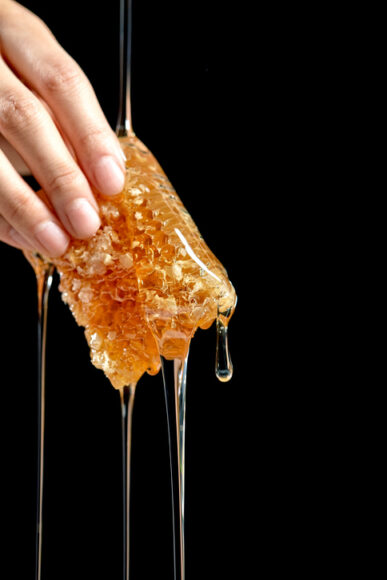It lowers triglyceride and fatty liver levels and increases HDL cholesterol
Honey, which appears to have sugar-like ingredients, has been shown to be good for heart health by lowering blood sugar and cholesterol levels.
The research team from the University of Toronto Medical School in Canada revealed that this was the result of a comprehensive analysis, including a systematic review of clinical trials on honey. Studies have shown that honey reduces fasting blood sugar, total cholesterol, bad cholesterol (LDL cholesterol), triglycerides, and markers of fatty liver disease. On the other hand, it increased the level of good cholesterol (HDL cholesterol).
“This is a surprising result because most honey is sugar, but honey contains common and rare sugars and proteins that are most likely beneficial to health,” said lead study author John Sevenpiper, associate professor. of nutrition at the University of Toronto Medical School, organic acids and bioactive compounds are complex. The composition of honey varies according to the variety (type of flower) and the time of collection, but in general it is made up of about 80% sugars (sugars) such as glucose and fructose and about 20% water.
“Experts have long used the adage ‘a sugar is a sugar’, but this study shows otherwise. Honey should be excluded from free or added sugars in dietary guidelines.” Free sugar is sugar that is in a molecular state that is not combined with any food components or other sugars. Added sugar is added when preparing various processed foods or cooking foods.
The research team included 18 clinical trials and 1,100 participants in this analysis. Researchers asked participants to consume an average of 40 grams (about 2 tablespoons) of raw honey per day for eight weeks (median). Ingested raw honey was honey made from a single flower such as acacia and clover honey.
According to the research team, the context of the analysis results is important. Participants ate a healthy diet and consumed limited amounts of raw honey, which did not exceed 10% of their daily calorie intake. If processed honey is pasteurized (usually at 65 degrees Celsius for more than 10 minutes), its health benefits are greatly reduced. Drinking honey as a hot beverage can also impact its health effects. “Using honey instead of sugar, syrup or other sweeteners may reduce the risk of cardiovascular disease,” the researchers said.
The research team said that more research should be conducted, focusing on raw honey and honey from single flowers, to further increase the credibility of the analysis results. The results of this study (Effect of honey on cardiometabolic risk factors: a systematic review and meta-analysis) were published in ≪Journal Nutrition Reviews≫ and presented by ‘Eureka Alert’, portal of the American Association for the Advancement of Science.


